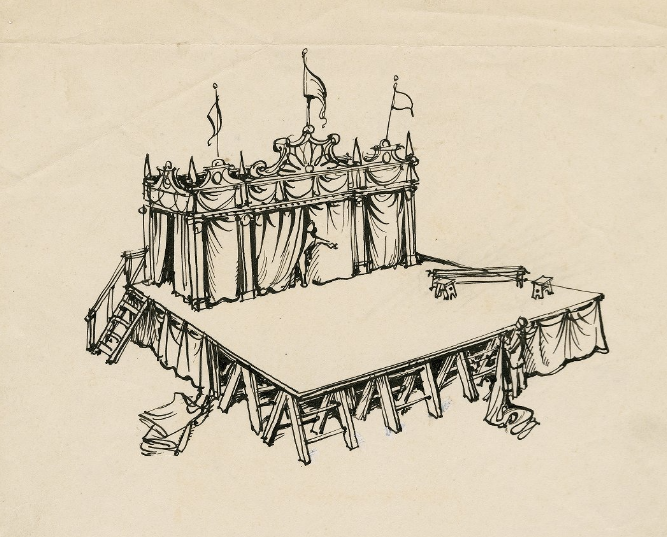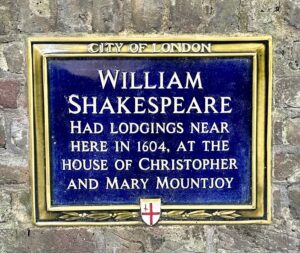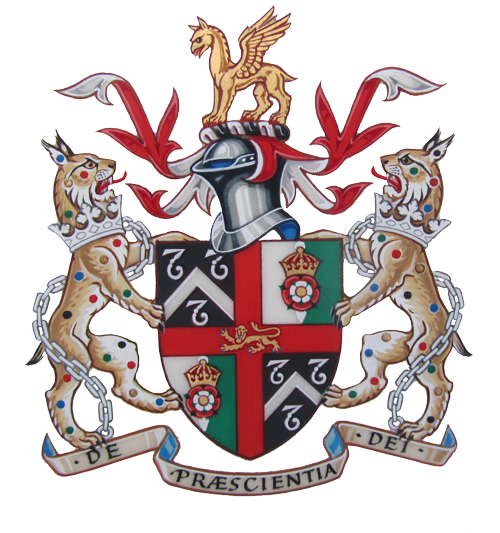On this day in 1562 diarist Henry Machyn recorded the following entry:
“The x day of August was Barbur surgyons fest, and they capt ther communion at Sant Alphes at Crepull-gat, and master Recherdson dyd pryche, the skott ; ther was good syngyng ; and after to ther halle to dener, and after dener a play.”
The Master elected in August 1562 was Richard Ferris, a member of King Henry VIII’s Household, Royal Surgeon and one of the medical attendants who accompanied Henry on his French military campaign of 1544. He lived in the Parish of St Giles, Cripplegate and had a country estate in Paddington. Ferris had been Master in 1551 and during his second term in 1562 he was appointed Serjeant Surgeon to Elizabeth I.

What play the Company members saw and who performed is unrecorded. Professional secular performance was in its infancy and the first known dedicated playhouse yet to be built, in the yard of the Red Lion in 1567 by John Brayne, Freeman of the Grocers’ Company and his brother-in-law James Burbage. It appears however that plays were performed regularly in Livery halls during this period as one-off performances, as well as privately in homes and publicly in City inns.
Machyn’s diary entry for 1560 records preparations for a Twelfth Night play (probably held at Clothworkers’ Hall by the then Lord Mayor Sir William Hewett) with the setting up of “a skaffold for the play halle, and after play was done ther was a goodly maske, and after a grett bankett that last tyll mydnyght.”
A Company Court Minute for 1566 states that ‘ALSO it is ordained that the masters and governors of the said mystery for the time being shall not at any time hereafter lend nor let out the hall of the said mystery to any body to keep weddings sports or games therein, or plays or dancing or any other like intent, except it be condescended by a Court of Assistants holden upon pain of forfeiture for every such offence forty shillings.’


Crown and City authorities regularly aimed to exert control over performance and its content on religious and political grounds, and as measures against infectious disease throughout the sixteenth century. The Mayor and Corporation of London banned plays within the City in 1563 and again in 1572 as a plague measure, and formally expelled all players from the city in 1575. In 1576 Brayne and Burbage built The Theatre in Shoreditch, which became hugely popular and at which William Shakespeare’s early plays were performed. In 1604 Shakespeare himself was to rent lodgings close to Barber-Surgeons’ Hall on the corner of Monkwell and Silver Streets in Cripplegate Ward.
Further reading:
The Diary of Henry Machyn, Citizen and Merchant-Taylor of London, 1550-1563: https://www.british-history.ac.uk/camden-record-soc/vol42
Records of Early English Drama: https://reed.utoronto.ca/
Folger Shakespeare Library Folgerpedia ‘Medieval Drama: Staging Contexts’ https://folgerpedia.folger.edu/Medieval_Drama:_Staging_Contexts
The business of playing: the beginnings of the adult professional theater in Elizabethan London
https://archive.org/details/businessofplayin00ingr/page/20/mode/2up
